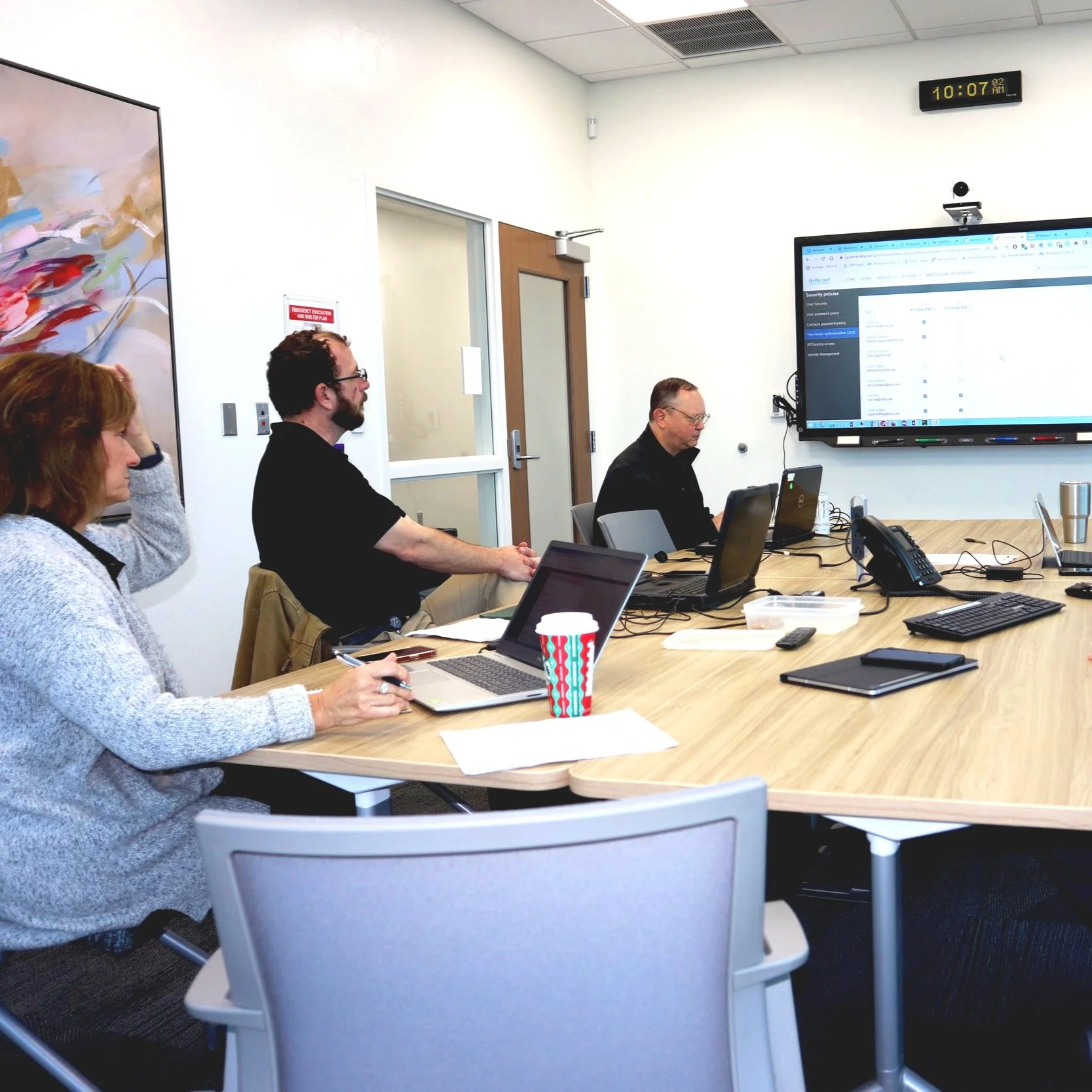
Dolce Vita IT Solutions LLC provides small and mid-sized businesses with a proactive, professional, and cost-effective outsourced IT department. This is why business owners come to us for help, and their success is what we deliver.

Dolce Vita IT Solutions LLC provides small and mid-sized businesses with a proactive, professional, and cost-effective outsourced IT department. This is why business owners come to us for help, and their success is what we deliver.

Penetration testing is so specialized that even for a small business of 10 employees it can often cost $5000-$8000. For a business with 100 employees, the cost is often closer to $20-30k and it can take 3-5 months to schedule and get the results back.
With Dolce Vita’s 3rd-party pen testing we can reduce that cost, often by over 50%, and we can have the testing results in your hands in under 3 weeks!
If our penetration testing is done as a managed service (meaning multiple tests over the year), we can simply divide the cost into a recurring monthly fee…so cost is spread evenly over the year!
In a time where news of data breaches are becoming “the new normal,” the need for organizations to evaluate their overall risk and avoid becoming the next news story has become critical. Organizations simply can’t protect themselves from risks they’re unaware of. Additionally, many organizations are simply unsure where to start.
As small and mid-sized businesses (SMBs) embrace new technological developments like the rise of artificial intelligence (AI), cloud computing, and the internet of things (IoT), they often overlook the security implications of digital transformation. This leaves many organizations more vulnerable to cyber theft, scams, extortion, and countless other cyber crimes. As a result, two in three SMBs suffered a security breach in the last year and cyber attacks are becoming increasingly sophisticated, targeted, and damaging. With the average cost per incident currently exceeding $380,000, a single security breach can be detrimental to a small firm. It is, therefore, vital that SMBs prioritize cyber security.

Whether you follow NIST 800-171, CMMC, or some other cyber framework, then independent penetration testing (performed by an independent third-party) is often a stated requirement.
Dolce Vita uses an independent third party to execute the testing and provide reporting…DVITS has no input into the reporting or the analysis in order to preserve testing independence.
Reports that Drive Improvements: The data provided in the reports will always be very informative. How these risks affect your organization, where your organization stands compared to its peers, how this test compares to the last assessment, etc., and how to remediate identified issues are all examples of data that are included in each report.

A basic analogy: A vulnerability assessment essentially just tells the customer that the door is unlocked; however, a penetration test actually tells the customer that, because the door is unlocked, we found an unlocked safe, unsecured jewelry, credit cards, and social security numbers laying around on the bed. It also explains how you could secure the door next time, how to protect the confidential data laying around on the bed, and more.
Most organizations have so much going on that it simply isn’t possible to deal with every cybersecurity issue at one time - so prioritize. Use the pen test results to identify low-hanging fruit (also known as “quick kills”) to improve your cyber posture markedly in a short period…then continue remediation with lower priorities.
The penetration testing looks at external testing (using open-source intel to learn about your organization and employees, determining where you may have public-facing portals, looking for open ports, and trying to get through your firewall from outside). Internal testing is done in such a way that the testing attacker has established a foothold inside your network. Then tools are carefully used to attempt to determine accounts which are in use and then efforts are made to exploit accounts and services. Account escalations may be made to check on other vulnerabilities in the network, operating systems and software.